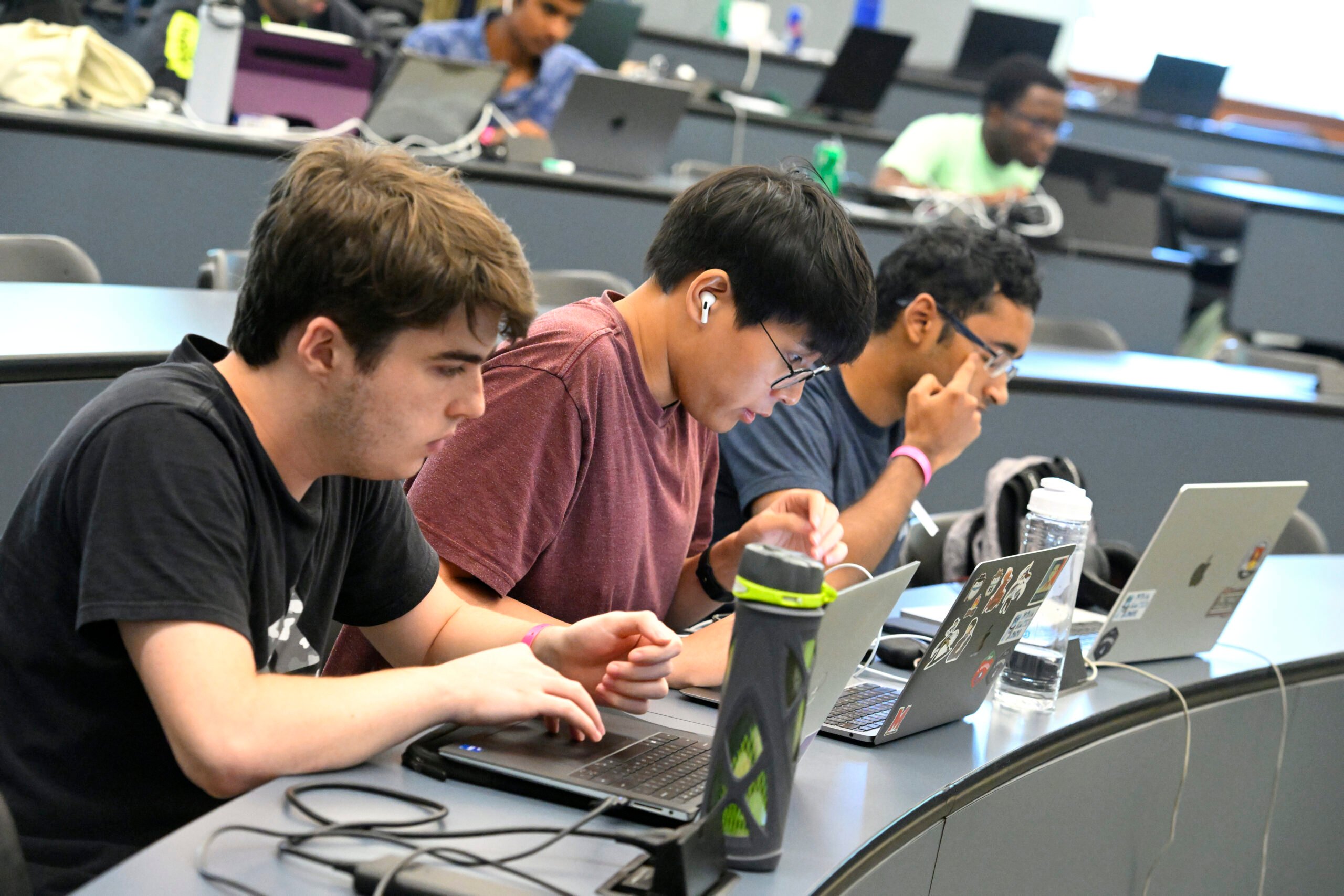Lucy Wu is a junior majoring in Computer Science and Applied Mathematics, with a minor in Computational Medicine. Passionate about multidisciplinary design and innovation, she loves attending hackathons and enjoys project-based learning. She is involved in the iGEM synthetic biology team on campus and leads HopHacks, JHU’s premier hackathon. She was interviewed by WEDC Student Advisory Board member Viggy Vanchinathan, who sought to explore how HopHacks fosters multidisciplinary design on campus.
HopHacks is a thirty-six-hour hackathon held in September. Open to all Hopkins students, it consistently draws high attendance, with teams eagerly competing for prizes in multiple tracks. The organizers, who also coordinate logistics, design themed merchandise, and recruit faculty speakers, establish certain tracks to emphasize multidisciplinary design. For example, the “Most Philanthropic Hack” prize, sponsored by Bloomberg, was created to encourage students from various majors to work together rather than compete against one another. Other tracks focus on specific applications, such as one sponsored by JHU’s Center for Biomedical Innovation and Design (CBID), which rewards teams that develop solutions to improve healthcare. Prizes include iPad Airs, JBL speakers, cash awards, and more.
Lucy also highlighted the importance of a diverse leadership team. Historically, HopHacks has been led primarily by Computer Science majors, but efforts have been made to recruit students from other backgrounds, such as visual arts. The executive team now includes students from Biomedical Engineering, Public Health, Behavioral Biology, and Neuroscience. “There’s space on the team for non-CS majors,” Lucy said. When it comes to organizing a hackathon creatively, “anyone can have the next big idea.”
Lucy has her own perspective on the value of multidisciplinary design. She initially focused on her Applied Mathematics and Statistics (AMS) major but decided to add Computer Science to engage in more project-based learning. Passionate about innovation, she hopes to integrate it into her coursework and future career. She also has advice for freshmen looking to follow a similar path: majors are just labels and do not define who you are. She encourages students to explore clubs and activities outside their major, as these experiences often lead to the most meaningful interdisciplinary opportunities.

